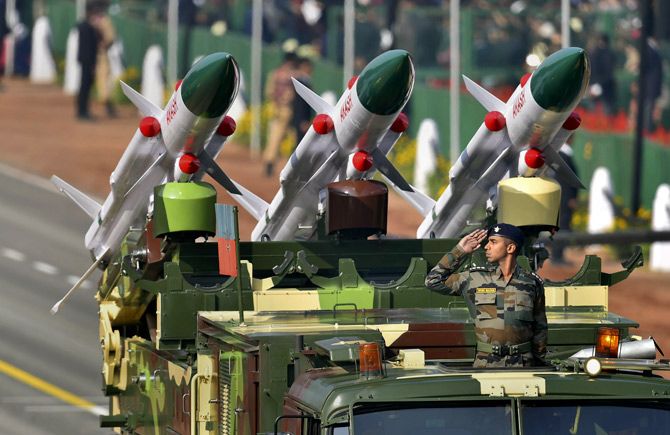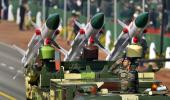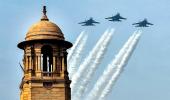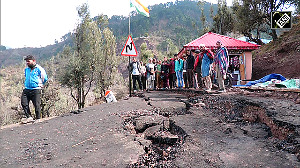Most of the scanty 6.35% rise in the defence budget is accounted for by manpower and running expenses.
Ajai Shukla reports.

The modest 6.35% rise in defence allocations - from Rs 405,193 crore in last year's revised estimates, to Rs 431,011 crore in Friday's Budget -- presents an even more worrying picture when the budget is disaggregated.
An analysis of the defence budget in a three-year window indicates that most of this scanty rise is accounted for by the revenue heads of manpower and running expenses.
Meanwhile, the important capital budget component, which funds equipment modernisation, has grown significantly slower.
From the baseline of the 2016-2017 budget to the present, three annual increments have raised spending on the three services by a total of 23%.
During this period, allocations for manpower (including salaries and pensions) have grown by 26%, while running costs have grown by 25%.
In comparison, the capital budget has grown by only 15%, averaging barely 4% each year.
This factors in allocations made to the army, navy, air force and coast guard; but not to the defence ministry, the ordnance factories and the Defence R&D Organisation.
It also assumes the defence budget will be spent in full this year, rather than returning a part of it unspent, as has happened in preceding years.
Government sources argue this year's capital allocation of Rs 108,248 crore cannot be increased further, since it already accounts for one-third of the central government capital expenditure of Rs 338,569 crore.

Defence industry executives also underline a compensatory factor: The benefits of customs exemption that Finance Minister Nirmala Sitharaman announced on the import of defence goods that are not made in the country.
This will make defence imports cheaper by 10.3%, which is the basic customs duty, and effectively increase the capital allocation by 5.15%, assuming half of all capital procurements are imported.
Effectively reduced by 10.3% will be the prices of Rafale fighters, P-8I maritime patrol aircraft, naval helicopters, Apache and Chinook helicopters from the US and S-400 missile systems, Krivak class frigates and a nuclear submarine in the pipeline from Moscow.
There is uncertainty over who will control the DRDO's research budget, which amounts to Rs 10,484 crore this year.
In her budget speech, Sitharaman announced that the government proposed to establish a National Research Foundation to 'fund, coordinate and promote research in the country'.
'NRF will assimilate the research grants being given by various ministries independent of each other,' she said.
It is unclear whether the DRDO budget will be subsumed under this.

Besides the DRDO's research budget, the government allocated Rs 95 crore towards 'Make' category projects, which involve Indian companies developing complex defence platforms.
Last year, the defence budget had allocated Rs 142 crore under this head, but the revised estimates brought it down to Rs 2 crore, indicating that the money had remained unspent.
The Budget has dissatisfied all three services, who believe their role entitles them to a larger share of the defence budget.
The army, by far the largest service, which is involved in counter insurgency duties year-round, notes that its share has come down over the last three years from 68.5% to 66.5% of the military budget.
The navy, which backstops the country's Indo-Pacific strategy and requires more warships, wants more than the 13.75% that its allocation is stagnating at.
The air force, whose budget has grown by almost 2%, wants a larger capital budget to fund a slew of fighter purchases in the pipeline.












 © 2025
© 2025